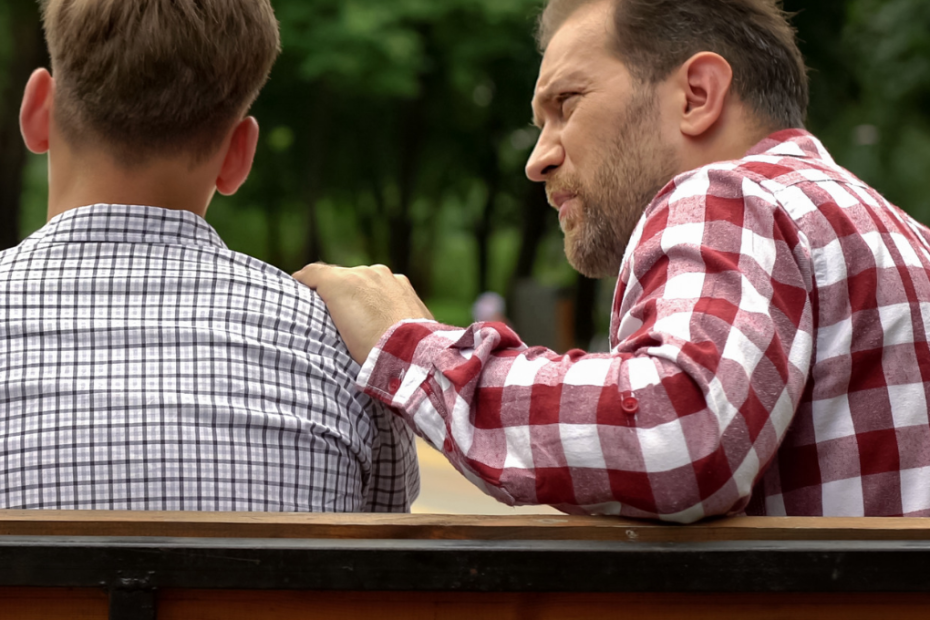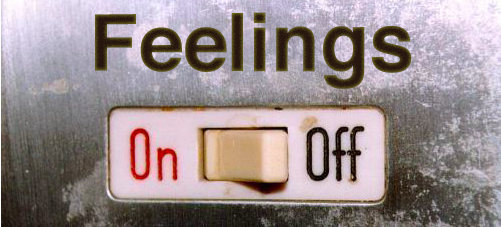Listen to the 7-minute podcast version
Watch the 1-minute introductory video
I hadn’t expected to be moved so much at a medical conference. I was at the UAB Medicine Addiction Symposium, run by the Addiction Recovery Program. There were some great speakers, which I expected. But the part that hit me most was the family story.
A charming and courageous woman spoke about Nick, her son who struggled with addiction. As she talked, I flashed back to our own family’s story and relived the emotions she was describing, deep feelings such as fear, hurt, confusion, frustration, anger, and guilt.
Because that is how you feel when one of your kids is addicted.
And in order to get through one of the worst times you will ever face in your life, you need to learn how to deal with the tornado of feelings that could easily overwhelm you.
How You Feel When Your Kid is Addicted
I heard the humorous-but-true metaphor once that dealing with your feelings is like having children in the car with you. You don’t want them behind the wheel, but you shouldn’t put them in the trunk either. In other words, you need to be aware of your feelings and learn to deal with them effectively, but you don’t want them driving you around.
But when addiction strikes, it’s easy to lose control, and the entire family may go on a journey through hell.
Parents find themselves using words they have never voiced, drug names and legal terms heard before only on television. And they find themselves doing things they never thought they would ever do: getting calls from the police, talking to rehab clinics, searching their kid’s room, endless pleading, yelling, crying, and isolating.
But they also learn to pray more deeply and fervently than ever before.
Because it is excruciatingly intense how you feel when your son or daughter is addicted:
- Fear – Your life feels like it’s coming apart. When your son (or daughter) goes out, you dread that something terrible will happen, lying sleepless until he (or she) eventually gets home. You’re scared you are losing them, and you dwell on the worst case scenarios.
- Hurt – The disrespect becomes hard to take, and his lack of gratefulness is a constant irritant. The attitude he throws around makes you feel that he doesn’t care about you at all. When he says, “I hate you,” you try to act like it doesn’t tear you up inside. But it does.
- Confusion – It seems you are constantly forced to make some of the toughest decisions you have ever made, and the rules are totally different now. In fact, there don’t seem to be any rules at all, because your life has devolved into an ongoing stream of insanity you have to manage your way through somehow. Even when you have no idea what to do next.
- Frustration – It finally hits you―hard―that there is no way you can control your son, no matter how hard you try. Everything you do to help doesn’t, and some of it seems to make things worse! For the first time in your life, you have absolutely no idea what to do.
- Anger – How can he do what he does? He’s disrupting everything in the family, and you’re tired of it! The fear, confusion, hurt, and frustration must come out somehow, and getting mad is how that happens. You do things in anger you’ve never done before.
- Guilt – In quiet times, you wonder what you could have done better while he was growing up. And wish you felt more confident what to do now. After giving in on something, you’re sure you’re enabling. After an argument, you wonder if you were too tough.
Feelings have taken over your life.
How You Feel After the Drama Has Passed
You wonder if anything good can ever come out of such dark times. But they can and, many times, they do. Because some of the most important lessons you learn in life are also often the hardest. Lessons such as:
- Substance abuse can happen to anyone – You weren’t perfect parents, but you did your best. And you’ve met many other parents in similar situations, so you know alcohol or drug issues can happen to any family. You learn to let go of regret.
- Addiction is a family disease – Addiction is a tornado that sweeps through the family, and everyone is affected. Whether they realize it or not, the entire family needs recovery, not just the one with addiction. You learn to focus deeper on relationships.
- Perseverance is critical – The tough times may last for years, even after the drama has subsided. The battle is to hang in there with love and courage and keep making it through a day at a time. You learn to find peace when circumstances aren’t peaceful.
You learn to be more aware of your feelings. Sometimes to react to them, but not be driven by them. You learn you can’t always control your emotions, but you can manage them, and use them as indicators of things you need to pay attention to.
If your kid is addicted, hopefully you now see that it’s normal to have these feelings. Don’t be ashamed of them, and don’t suppress them. Just feel them. Practice dealing with those emotions in the healthiest way you can, and keep being the best parent you can be.
Always be looking for the positive lessons that will continue but understand the most important ones may not come until later.
Because it seems God does his best work during our toughest times. Perhaps only in looking back will you see how he was involved all along the way. You will come to appreciate what you have learned about your family, yourself, and what really matters in life. And discover a new way of living that brings you more peace and contentment than you have felt before.
It can be torturous how you feel when your son or daughter is dealing with addiction. But, as terrible as those times are, you often see later that those dark events had a bigger purpose. And that purpose may change everything.
Question: Are you willing to accept that addiction can happen in your family?
Action: Learn to be aware and empathetic with families struggling with addiction.
Photo by plasticrevolver  Photo by cykocurt
Photo by cykocurt  Photo by ~Brenda-Starr~
Photo by ~Brenda-Starr~ 



